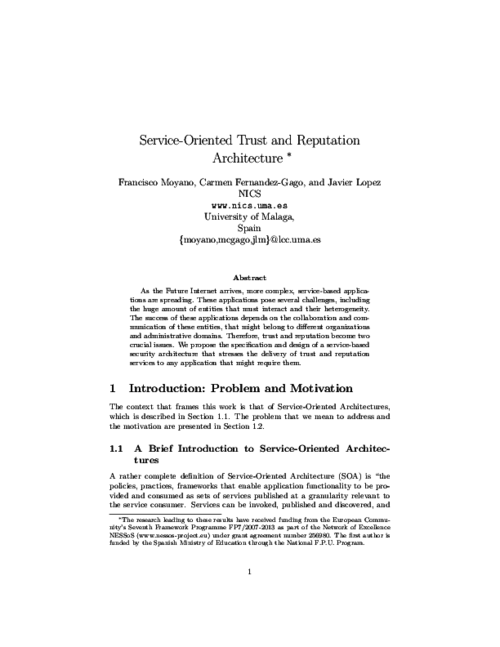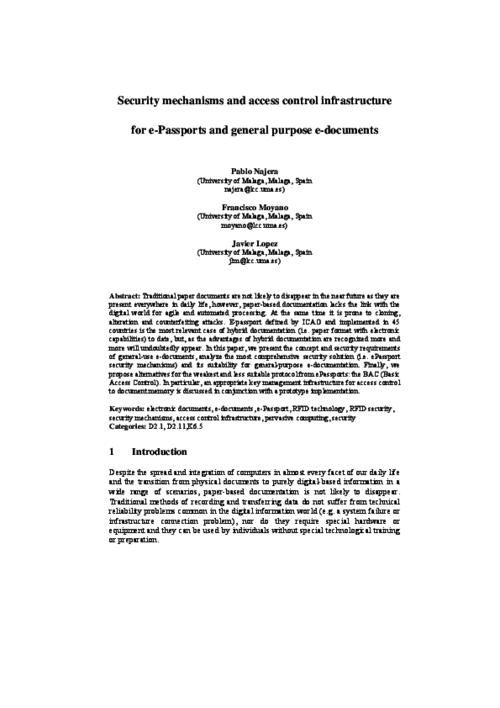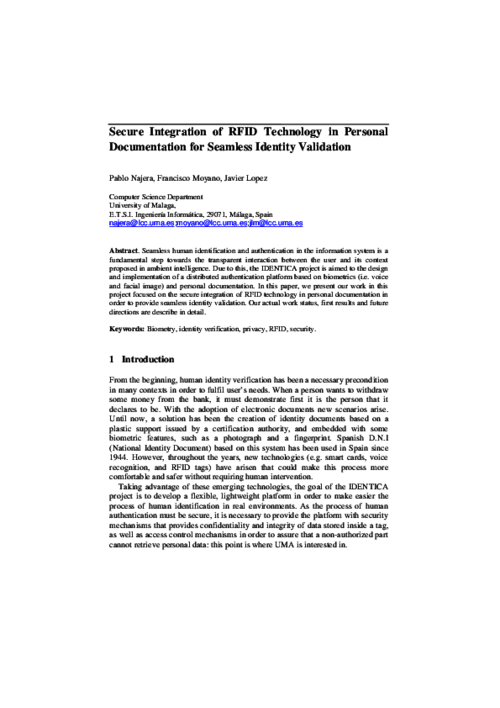 ] Type Year
] Type Year Proceedings of the Doctoral Symposium of the International Symposium on Engineering Secure Software and Systems (ESSoS-DS 2012), J. Cuellar, and N. Koch Eds., CEUR-WS 834, CEUR-WS, pp. 41-46, 2012.
Abstract
As the Future Internet arrives, more complex, service-based applications are spreading. These applications pose several challenges, including the huge amount of entities that must interact and their het- erogeneity. The success of these applications depends on the collaboration and communication of these entities, that might belong to different or- ganizations and administrative domains. Therefore, trust and reputation become two crucial issues. We propose the specification and design of a service-based security architecture that stresses the delivery of trust and reputation services to any application that might require them.

Journal of Universal Computer Science, vol. 15, pp. 970-991, 2009. DOI
Abstract
Traditional paper documents are not likely to disappear in the near future as they are present everywhere in daily life, however, paper-based documentation lacks the link with the digital world for agile and automated processing. At the same time it is prone to cloning, alteration and counterfeiting attacks. E-passport defined by ICAO and implemented in 45 countries is the most relevant case of hybrid documentation (i.e. paper format with electronic capabilities) to date, but, as the advantages of hybrid documentation are recognized more and more will undoubtedly appear. In this paper, we present the concept and security requirements of general-use e-documents, analyze the most comprehensive security solution (i.e. ePassport security mechanisms) and its suitability for general-purpose e-documentation. Finally, we propose alternatives for the weakest and less suitable protocol from ePassports: the BAC (Basic Access Control). In particular, an appropriate key management infrastructure for access control to document memory is discussed in conjunction with a prototype implementation.

Digital Home Networking, R. Carbou, M. Diaz, E. Exposito, and R. Roman Eds., pp. 139-202, 2011.
3rd Symposium of Ubiquitous Computing and Ambient Intelligence 2008, Advances in Soft Computing 51/2009, Springer, pp. 134-138, October, 2008. DOI
Abstract
Seamless human identification and authentication in the information system is a fundamental step towards the transparent interaction between the user and its context proposed in ambient intelligence. In this context, the IDENTICA project is aimed to the design and implementation of a distributed authentication platform based on biometrics (i.e. voice and facial image) and personal documentation. In this paper, we present our work in this project focused on the secure integration of RFID technology in personal documentation in order to provide seamless identity validation. Our actual work status, first results and future directions are described in detail.
